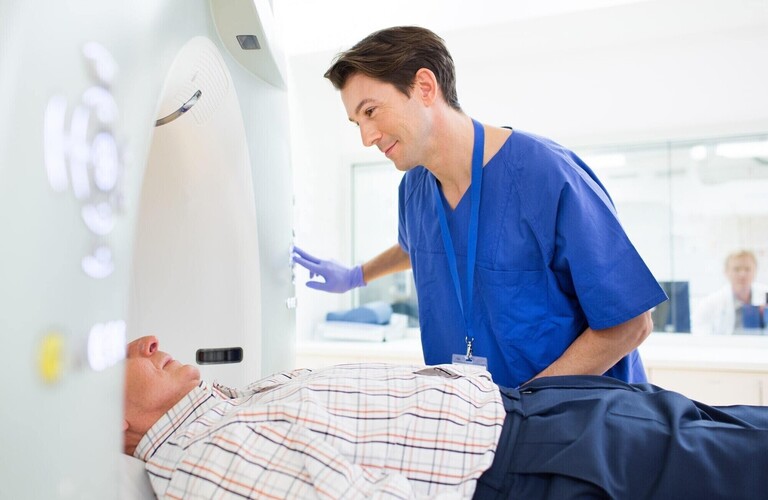Bowel cancer usually refers to a malignant growth in the large bowel (colon or rectum) and is the second commonest cause of cancer related death (and the commonest in men who don't smoke). Bowel cancer affects both men and women with a sharp increase in incidence from the age of 50 years.
Fortunately bowel cancer is generally preventable by timely detection of its precursor, the colonic polyp. The polyp is a small, rounded growth protruding from the lining of the bowel which often looks like a pea or cherry. When smaller than a pea the polyp is often ignored and can be left in place for review by CT colonography in five years. However, when a polyp is larger, like a cherry, it tends to grow slowly and, over several years, transform into cancer. When we find a polyp , it can frequently be removed by a simple procedure using an endoscope passed into the bowel through the bottom.
People with polyps are often unaware they have them as they do not usually cause symptoms. Symptoms may develop however as polyps increase in size or if they transform into cancers. Even when polyps have transformed into cancer, detecting them early improves prognosis with most localised cancers cured by removing them with key-hole surgery.
London Radiology understands bowel cancer more than any other Radiology group in the UK and has unrivalled experience of detecting its precursor polyp using CT colonography. When detected, staging cancer accurately will help ensure the success of treatment. Consequently, our highly experienced Radiologists insist on the highest standard of imaging to achieve this.
When cancer is treated, patients follow an imaging based surveillance programme to detect any sign of disease coming back so it can be dealt with as soon as possible. The team at London Radiology work closely with leading Oncologists and Surgeons to ensure patients are cared for every step of the way, with reassurance for those free of disease and early diagnosis for those requiring additional therapy.




